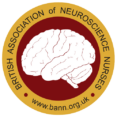Expert Exchange Grant
Marjorie Newsome
Marjorie Newsome was the generous benefactor who left the bequest to the Barrow Neurological Foundation that has enabled the setting up of the Barrow Foundation in the UK.
Her family originally came from Indiana and her father was an attorney. She had one sister who was a doctor and a twin brother. She suffered from epilepsy from her infancy and was treated at the Barrow in her teens by Dr. John Green, the founder of the Barrow Neurological Institute in Phoenix, Arizona.
Her ambition was to become a psychotherapist, but because of the way in which epilepsy was viewed at the time – in the 50s and 60s it was classed as a mental “illness”- , she was unable to practice in the USA. She therefore moved to the UK in the early 1970s and set up a practice in London. She and Dr Green kept in contact throughout her life.
She passed away in Milton Keynes in 1995, due to complications of her condition, but left the bulk of her assets to the Barrow in recognition of the work of Dr Green and his colleagues, and for the furtherance of the training of neurosurgeons and neurosurgical knowledge in the UK.
The Barrow Foundation UK
The Barrow Foundation UK was set up as a charity in the UK in 1997 as a direct result of this bequest. It raises funds for education and research in the neurosciences, including several programs at Barrow Neurological Institute in Phoenix, Arizona.
The Foundation is governed by a Board of Trustees composed of six individuals from the United Kingdom and three individuals from the United States.
The Marjorie Newsome Traveling Fellowship was established in 2003 to provide specialized training opportunities for the individual achieving the highest score in the Intercollegiate Specialty Examination in Neurosurgery in the UK (FCRS Norman Dott Medal Winner). The award covers expenses associated with a three-week visit to Barrow Neurological Institute and three additional weeks at a training site chosen by the individual.
In addition, Barrow Foundation UK provides a grant to the Neuroscience Nurses Association. This provides senior nurses with training at the Barrow through an “Expert Exchange” and allows nurses several weeks of observation at Barrow Neurological Institute to work on a research thesis to be presented on their return. The Expert Exchange is a worldwide programme which provides dedicated time for the focused study of the care, management, and research in neuroscience nursing, which will translate directly to improved patient care and the ongoing education of staff.
For more information about the Barrow Neurological Institute Department of Neuroscience Nursing
Barrow Background
Barrow Neurological Institute is more than an internationally renowned neurological center. It is the place where neurological subspecialties are the specialty and the norm. Barrow is respected worldwide for its pioneering treatments, procedures and research into complex brain- and spinal cord-related diseases and conditions. Physicians, specialists, and support staff are among the best in the business.
The Specialised Programmes and Centres
To target difficult neurological conditions, Barrow has created several specialised programmes and centres. For example, they have established one of the only comprehensive hypothalamic hamartoma (HH) treatment and research centers in the world. Barrow is one of the few places where children can undergo surgery for these life-altering tumours and benefit from ongoing research. The institute also has programmes for patients with acoustic neuroma tumours, craniofacial abnormalities and normal pressure hydrocephalus. These subspecialty centres are staffed by experts and specialists who focus on providing patients with the best possible diagnoses and cutting-edge treatments.
Newsome Fellowships
The Newsome Fellowships have been awarded since 2003 to the winner of the Norman Dott medal. Previously this was only the Senior Neurosurgical award. Last year at the SBNS in conjunction with the Barrow Foundation & the Barrow Neurological Institute (BNI) Arizona decided to open the award to Junior Neurosurgical trainees & Neurosurgical Nurses.
The three awards are set out below:
1. Neurosurgical Nurse award (Full BANN members Only)
Recipient: This award is given to the best clinical oral presentation at the annual BANN Conference. Oral paper are judged by the executive of BANN. Outcome of project submitted to BANN for presentation and publication.The lead presenter then has the opportunity to submit a research proposal to the BANN board to be undertaken while at the BNI. The programme provides dedicated time for the focused study of the care or management or research in neuroscience nursing, which will translate directly to improved patient care and the ongoing education of staff.
Award: All expenses paid visit to the Barrow Institute, Phoenix, Arizona for up to three weeks. During the visit the winner will attend the Barrow Neuroscience Nursing Symposium and present their work.
They will also present their research project back in the UK at the next BANN Conference
To view and read about previous award winners please click below
2. Senior Neurosurgical award (medical staff only)
Recipient: Norman Dott medal winner for the highest mark in the FRCS (SN) exam of the year.
Award to be taken within 2 years.
Award: All expenses paid visit to the Barrow Institute, Phoenix, Arizona up to 6 weeks (min 3 weeks) and to attend the AANS congress (registration and accommodation paid).
Initial £2000 award for travel etc and subsequent expenses paid on production of valid receipts.
3. Junior Neurosurgical Trainee award (medical staff only)
Recipient: Application invited from junior trainees in the first three years of run through neurosurgical training and awarded to the applicant with the highest mark in the MRCS exam with the neurosurgical component.
Award to be taken within 1 year
Award: All expenses paid visit to the Barrow Institute for up to three weeks and to attend the Barrow Institute Neurosciences symposium.
Initial £1000 award and subsequent expenses paid on production of valid receipts.
